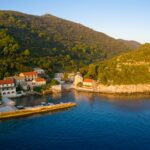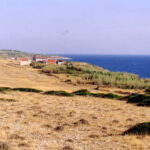A change in policy at Croatia’s non-Schengen borders.
“There will be more work for the Croatian police which will carry out systematic control of the EU’s external borders”, Croatian Interior Minister Ranko Ostojić said after a meeting of the EU Council in Brussels, which was attended by Ostojić and Justice Minister Orsat Miljenić. The Council agreed that citizens of the EU will pass through stricter controls at border crossings which should reduce the risk of potential terrorists who are citizens of EU countries. However, according to Ostojić, stricter controls of EU citizens at border crossings relate primarily to the external borders of the Union, and not so much to the external borders of the Schengen Area, and the new policy should not create longer queues of passengers and vehicles on Croatian border with Slovenia and Hungary, reports Vecernji List on November 21, 2015.
“Europe has to defend itself in some way, and that means that the rules will be implemented more forcefully on the external borders. Croatia can do it. The conclusions of the meeting clearly show that the controls will be at the external borders of the Union” Ostojić said. Slovenian Interior Minister confirmed Ostojić’s interpretation of the conclusions. “With this, the outer borders are the same as the borders of the Schengen Area”, Vesna Györkös Žnidar said.
Due to the right to freedom of movement, so far citizens of the European Union at border crossings were subjected to less strict controls than citizens of countries outside the EU. However, the interior ministers of 28 member states now want for the control of ID documents of EU citizens to become systematic, and that every person is checked against a database which is officially called the Schengen Information System. It contains information about potential terrorists, criminals, missing and wanted persons.
Around 6,200 Croatian border police officers now have a completely new task: to control the citizens of the EU the same way they used to control the citizens of countries outside the EU.
After Slovenia, Croatia, Serbia and Macedonia made a decision to close the Balkan route for economic migrants from Morocco, Algeria, Bangladesh, Sri Lanka, Liberia, Sudan, Congo and Pakistan, there were no new arrivals of people from these countries. “If Serbia tries to send us economic migrants, we will return them and prevent their entry to Croatia”, Domagoj Džigumović, spokesman of the Vukovar-Srijem Police Department, said yesterday.
When asked about the Serbia’s expectations that Croatia and Slovenia could change its policy towards economic migrants because these people would otherwise turn to illegal and alternative routes, primarily through Bosnia and Herzegovina, Džigumović replied that it was not a Croatian policy and that Croatia only refused the Slovenian request to accept 162 persons.
Croatian Interior Minister Ranko Ostojić said earlier that Croatia cannot accept those people who are not able to enter Slovenia, because Croatia would otherwise become flooded with migrants. From midnight to 9 pm on Friday, 3,230 refugees entered Croatia. Since the beginning of the migrant crisis, 423,319 migrants and refugees have passed through Croatia.







